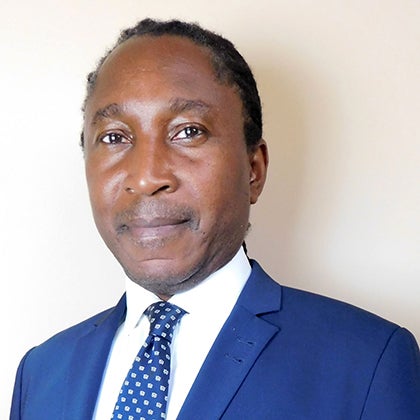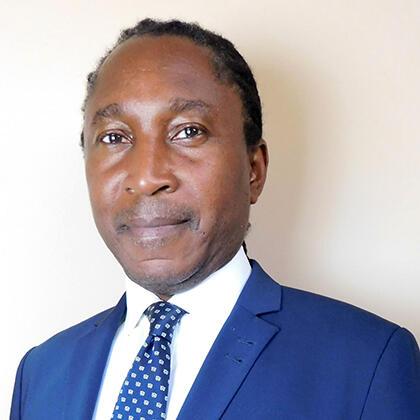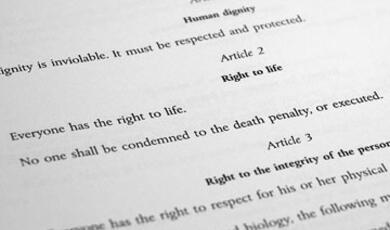The Immigration Act 1971: Celebrated or Flawed?
Share
- Details
- Text
- Audio
- Downloads
- Extra Reading
Commonwealth citizens once enjoyed the right to live, work and settle in the UK without any restrictions. But a racist backlash against Black and Asian immigration led to legislators introducing immigration controls in the Commonwealth Immigrants Act 1962, which were broadened by the Commonwealth Immigrants Act 1968 to deprive East African Asians of the right to settle in the UK. Its shameful successor, the Immigration Act 1971 continues to form the basis of our xenophobic immigration laws today.
Image © David Woolfall CC-BY-3.0
Download Text
“Discrimination on the ground of race, sex and religion are all now discredited, but discrimination on the ground of nationality is written into the laws of every land.”
- Theodore Zeldin
Leslie
Today’s lecture will be about the UK’s system of immigration laws. What are immigration laws? Where did they come from? Why do we have them? And do we need them?
This is a subject that means a great deal to me. I am a Black British person who was born in London in 1965. My family came to the UK from Antigua and Dominica as part of the Windrush generation. The story we will be telling in this lecture is interwoven with my own family’s story.
As we will be exploring in this lecture, the story of British immigration laws from the 1960s to the present day has been, in large part, a story about race and racism. We are going to trace the history of immigration control from the early twentieth century to today, and we are going to situate it in a social, political and economic context. And we are going to examine some of the arguments in favour of restricting immigration, and see whether they stack up.
I want to dedicate this lecture to my late colleague Ian Macdonald QC, who died in 2019. Ian was a giant of the Bar. Called to the Bar in 1963, he defended immigrants and fought racism throughout his long career. Amidst the heightened racism of the 1960s and 70s, he fearlessly stood up for the oppressed and marginalised. He pioneered the field of migrants’ rights advocacy as we know it today. His book, Macdonald’s Immigration Law and Practice, is now in its 10th edition and remains the pre-eminent textbook of UK immigration law. I am proud to call him my colleague and my friend.
I also want to introduce a guest for this lecture, David Neale. David is the legal researcher at Garden Court Chambers. He previously practised as a barrister specialising in immigration law from 2014 to 2017. He is an expert in all areas of immigration, asylum and nationality law and is the co-general editor of the current 10th edition of Macdonald’s Immigration Law and Practice. He is also an Assistant Consultant Editor of the British nationality volume of Halsbury’s Laws of England, a contributor to Butterworths Immigration Law Service, and writes regularly for Legal Action magazine. He regularly delivers training on immigration and asylum law.
This lecture will be in three parts. First, I will talk about the development of British immigration law from the 1960s to today. Then David will talk about the immigration and asylum system today. Finally, I will come back in with a few thoughts on the politics and policy of immigration.
Before we talk about the history of British immigration laws, I’d like to define what we mean by immigration laws. Immigration laws are laws which restrict the entry and stay of non-citizens. Generally speaking, in international law, countries can’t restrict the entry and stay of their own citizens – although there are some important exceptions to this, which we will be discussing later. So immigration law is intertwined with nationality law. In general, if you are a citizen, you have the right to live in the country of your citizenship and you are not subject to its immigration laws. Whereas if you are a non-citizen, you are subject to immigration laws and you need the permission of the government to enter and stay. So the concept of nationality is fundamental to immigration law.
I realise that this all sounds very obvious. But it is important to define our terms carefully, because there are other legal restrictions on cross-border movement that are not immigration laws in this sense. For example, during the coronavirus pandemic most countries have required people arriving in the country to quarantine and take PCR tests. This is not an immigration law as I am using the term, because it applies to citizens and non-citizens equally. It isn’t based on nationality. So we aren’t going to be talking about that type of law today. We’re going to be talking about immigration laws in the strict sense – laws that restrict the entry and stay of non-citizens.
So with this definition in mind, let’s talk about the history of British immigration laws. In order to talk about immigration law, we also have to talk about nationality law, because the two are fundamentally intertwined.
Britain first introduced controls on immigration in 1905. But for the first half of the twentieth century, those controls only applied to people who were “aliens” – that is, people who were not British subjects. At the time, Britain had a vast empire that spanned much of the world and hundreds of millions of people. And many of the people born in Britain’s colonies abroad were British subjects. There were some exceptions to this, because some of Britain’s territories were protectorates rather than colonies. People born in British protectorates were not always British subjects, but they had a different nationality status called “British protected persons”.
So on the eve of the Second World War, we had two types of British nationality: British subjects, and British protected persons.
After the Second World War, however, a lot of changes occurred.
First of all, some of the white-majority British territories abroad, such as Canada, Australia and New Zealand, had been steadily becoming more independent. They had already gained a measure of political independence before the war with the 1931 Statute of Westminster. They were no longer just British colonies. At the time, they were known as “the dominions”.
Secondly, there were growing independence movements in some of Britain’s colonies abroad. As most people know, India became independent from the British Empire on 15 August 1947. During the following decades a lot of other colonies achieved independence. Some of them kept the Queen as head of state, while others became republics.
Against this backdrop, the UK Parliament passed the British Nationality Act 1948. This divided British subjects into two new statuses. People from the UK and its remaining colonies were called “Citizens of the UK and Colonies” or CUKCs. People from the newly independent Commonwealth countries were not CUKCs, but had the new status of “Commonwealth citizen”.
However, both CUKCs and Commonwealth citizens continued to enjoy the legal right to live and work in the UK. In short, Britain had open borders for people from the Commonwealth.
And something else was happening at the same time. Large numbers of Black and Asian people from the British Empire were coming to Britain to help rebuild Britain after the war. Nowadays, this group of people are often known as the “Windrush generation”, after the ship HMT Empire Windrush which docked in Britain on 22 June 1948 bringing people from the Caribbean.
However, a turning point came in 1962. The Commonwealth Immigrants Act 1962 introduced controls on immigration from the Commonwealth for the first time. In order to understand why it happened, we have to talk about race and racism.
At the outset of the 1960s, racial tensions about immigration were running high. As most people know, this was a time when landlords and businesses would display “no blacks, no Irish” signs. And racism was influential in Parliament, too. Some MPs, such as the Conservative backbenchers Norman Pannell and Cyril Osborne, were vocal opponents of Black and Asian immigration from the Commonwealth. The Conservative government of Harold Macmillan came under political pressure.
Following a spike in immigration numbers in 1960 and 1961, the Government introduced the Commonwealth Immigrants Act 1962. This piece of legislation was directly designed to control the immigration of Black and Asian people from the Commonwealth. It imposed immigration controls on Commonwealth citizens who were not CUKCs. It also imposed immigration controls on CUKCs who had a passport issued in a British colony rather than in the UK.
The 1962 Act didn’t silence the anti-immigration movement, however. Many of you will have heard of the 1964 Smethwick by-election, widely regarded as the most racist election in British history. Supporters of the Conservative candidate openly used a slogan containing a racial slur. “If you want an [N-word] for a neighbour, vote Labour”. Racial tensions were running high. Those racial tensions were stoked by politicians of the time – such as Enoch Powell, who is most remembered for delivering the racially inflammatory “Rivers of Blood” speech in 1968.
In the late 1960s, Asians from Kenya and Uganda, many of whom were CUKCs with British passports, began to arrive in Britain fleeing governments which were hostile to them. The Government reacted. By then, a Labour government was in power led by Prime Minister Harold Wilson, with future Prime Minister James Callaghan as Home Secretary. But if you were expecting Labour to be less racist than the Conservatives, you would be disappointed. Callaghan introduced the Commonwealth Immigrants Act 1968, with the aim of excluding the East African Asians from the UK.
The 1968 Act expanded the scope of the controls that had been established by the 1962 Act. Controls were now imposed on any CUKC unless they, or one of their parents or grandparents, was born, adopted, naturalised or registered as a citizen in the United Kingdom. So CUKCs with recent UK ancestry, most of whom were white, remained free from controls, while CUKCs from the British colonies, most of whom were Black and Asian, were subjected to controls. Its immediate impact is that the East African Asians, unable to return to Kenya or Uganda and unable to settle in Britain, were left with no home at all.
In public, Callaghan denied that the Act was racist. But Cabinet papers released in the late 1990s show that he was lying. In a confidential memo, the Cabinet Secretary Sir Burke Trend suggested that “the Asian community in East Africa are not nationals of this country in any racial sense”. A startlingly racist memo written by Callaghan himself exposes that his thinking was racist from start to finish. He said, I quote:
“It is sometimes argued… that we can take a less serious view of the scale of immigration and settlement in this country because it could be, and currently is being, more than offset by total emigration. This view overlooks the important point that emigration is largely by white persons from nearly every corner of the United Kingdom, while immigration and settlement are largely by coloured persons into a relatively small number of concentrated areas. The exchange thus aggravates rather than alleviates the problem.”
In the same memo, he admitted that, I quote: “we decided to legislate to slow down Asian immigration from East Africa”. So let’s not mince words. The 1968 Act was a racist Act enacted for racist reasons.
And that is not just my opinion. In 1973, the European Commission on Human Rights, as it then was, gave judgment in the case of East African Asians v United Kingdom. It found not only that the 1968 Act was racially discriminatory, but also that it violated Article 3 of the European Convention on Human Rights in that it constituted “degrading treatment”. That is a very extreme finding – but in the circumstances, a fully justified one.
The Government supposedly remedied this injustice by creating a scheme called the “special quota voucher scheme” that allowed some CUKCs to settle in the UK based on an annual quota.
But the racist framework of controls established by the 1968 Act remained in place. In 1971, Parliament consolidated immigration law into a new Act, the Immigration Act 1971. This Act is still in force and remains the fundamental basis of British immigration law to this day. It came into force on 1 January 1973.
The 1971 Act created a single system of controls for aliens and Commonwealth citizens for the first time. And it introduced the concept of “patriality”. People who were “patrials” had the right of abode – that is, the absolute right to live in the UK – while people who were “non-patrials” did not. Non-patrials required “leave to enter” and “leave to remain”, and these concepts remain the basis of UK immigration law today.
So who was a patrial? CUKCs who were born, naturalised, adopted or registered as citizens in the UK, the Channel Islands or the Isle of Man, or who had a parent or grandparent who was, were patrials. Commonwealth citizens who had a parent born in the UK were also patrials. So you can see that the racist criteria of the 1968 Act were carried over to the 1971 Act – CUKCs with UK ancestry, who were mostly white, were given the right of abode, while CUKCs without UK ancestry were not. Some CUKCs who had lived here for five years or more were also patrials. But the vast majority of Black and Asian people from the Commonwealth were subjected to controls, even if they were CUKCs who held British passports.
So you can see that by the early 1970s we had an unusual disconnect, where there were large numbers of people who were UK citizens with UK passports but who had no right to live in the UK. This defied the normal international law principle that countries can’t exclude their own citizens.
In the meantime, another change was taking place. Through the 1960s and 70s most of Britain’s colonies became independent. And typically, when a colony became independent, most of its people lost their status as CUKCs. They remained Commonwealth citizens, but as we have seen, CUKCs were treated more favourably than Commonwealth citizens by the 1962, 1968 and 1971 Acts. This meant that some people lost their right to live in the UK without even realising it. In most cases, people from a colony kept their CUKC status if their father or paternal grandfather was born in the UK or a remaining colony – so again, people with UK ancestry, who were mostly white, were treated more favourably.
The next big change was the British Nationality Act 1981, which brought nationality law more into line with immigration law. CUKCs who were patrials were renamed “British citizens”. Non-patrial CUKCs became either “British Overseas citizens” or “British Dependent Territories citizens”. There are still lots of British Overseas citizens around today, and they still do not enjoy an automatic right to live in the UK. So Britain still defies the international law principle that all citizens have the right to live in their own country.
Another change made by the 1981 Act, which continues to cause massive problems today, was the abolition of birthright citizenship. Before the 1981 Act, generally speaking, everyone born in the UK was a CUKC, regardless of the status of their parents. There were a couple of exceptions, such as children born to foreign diplomats. But generally speaking, being born in Britain meant you were British – and lots of people assume this is still the case. But it isn’t. Children born in the UK are only British if one of their parents is British in the UK or has the right to live in the UK permanently. For this reason, many children born in the UK today are not legally British. Although British-born children normally have the right to register as British after age 10, high Home Office fees shut many children out from British citizenship until recent litigation forced the Home Office to change its stance.
This has been a whistle-stop tour of the history of immigration and nationality law. We haven’t covered all the other arbitrary restrictions, such as the fact that children of unmarried British fathers were shut out from British citizenship for a long time. But there are two messages I think we can draw from this story.
The first message is that nationality is arbitrary. It’s an accident of birth. Your nationality depends on when you were born, where you were born, and who your parents were. Discrimination based on nationality is just as unjust as discrimination based on race, gender or any similar characteristic. But while we have laws that seek to combat race and gender discrimination, our laws explicitly embrace discrimination based on nationality. Indeed we have a whole government department whose purpose is to control the entry and stay of non-citizens, backed up by the violence of detention and enforced removal.
The second message is that British immigration law is rooted in racism. It was created because of racism, and it exists today because of racism. The racist foundations of the 1962 and 1968 Acts were carried over into the 1971 Act, and the 1971 Act is still the basis of our immigration law today. Racism is baked into the very foundations of our immigration law.
I’m now going to hand over to David to talk about how the immigration system impacts people today.
David
Thank you, Leslie. The immigration system is a vast topic and I’ve only got time to cover a small part of it today. I’m going to talk about the various forms of protection available in immigration law for people who are at risk of suffering harm in their home countries. I’m going to critically examine the UK’s claim that it protects refugees through its asylum system. I’m going to talk about the inadequacy of asylum law as a system of protection, and the brutality and cruelty that our asylum system frequently inflicts on genuine refugees. I’m also going to look at the protection that immigration law affords for private and family life, and how our immigration law tears families apart.
We’re going to be talking about three main forms of protection: asylum, humanitarian protection and the European Convention on Human Rights.
We’ll start with asylum. Most people have a general idea of what the words “asylum” and “refugee” mean, but there are a lot of misconceptions about it.
The concepts of asylum and refugee status come from the 1951 Refugee Convention, a treaty signed in the aftermath of the Second World War. Many nations, including the UK and the various EU countries, are signed up to the Refugee Convention and apply it as part of their immigration law. The Convention lays down a basic definition of a refugee. The definition is a little bit wordy. A refugee is someone who “…owing to well-founded fear of being persecuted for reasons of race, religion, nationality, membership of a particular social group or political opinion, is outside the country of his nationality and is unable or, owing to such fear, is unwilling to avail himself of the protection of that country; or who, not having a nationality and being outside the country of his former habitual residence as a result of such events, is unable or, owing to such fear, is unwilling to return to it.”
When a person claims to be a refugee – which is also known as claiming asylum – there are several things they have to prove in order to be recognised as a refugee. First, they have to prove that they have a well-founded fear of being persecuted in their home country. Second, they have to prove that the persecution is because of their race, religion, nationality, membership of a particular social group or political opinion. Third, if the persecution is from non-state actors, they have to prove that their home country’s authorities wouldn’t adequately protect them against it. Fourth, they have to prove that they couldn’t avoid the persecution by relocating to another part of their home country. That last criterion involves asking, first, whether they could avoid the persecution by relocating, and second, whether it would be reasonable for them to do so.
In some cases there are also added complexities – for example, certain people are excluded from refugee status under the Refugee Convention because of past crimes. But those are the general principles.
What I want to talk about here is two things that the Refugee Convention doesn’t do. First, it does not provide refugees with a safe and legal route to reach a safe country. In order to claim asylum in the UK, in general, you have to already be in the UK. You can’t claim asylum from your home country. And the likelihood is that you can’t come to the UK legally without a visa. The UK imposes mandatory visa requirements on most of the countries from which refugees come, and airlines are penalised if they let people travel without a visa.
A small number of refugees are resettled under resettlement schemes, but the vast majority have no choice but to leave their country through irregular means. That leaves people with two choices. First, if they have the money and resources to do so, they can try to get a visa to a safe country under false pretences, and then claim asylum when they arrive. In order to do that, they have no choice but to conceal their true intentions. Or, if they don’t have the ability to do that, their only option is to cross borders illegally, such as in the back of a lorry or on a small boat. This is often very dangerous and many people die. Others are pushed into the hands of human traffickers who exploit them.
What I want to emphasise is that most people in this position have no choice, because there are, for most people, no safe and legal routes to reach a safe country. In many cases, it’s a choice between escaping your country illegally, or staying and being killed or tortured. And of course many people never manage to escape at all.
The Home Office often says that people shouldn’t enter Britain illegally because they should have claimed asylum in France or Italy or another European country. But this ignores the complexity of actual human lives. In some European countries many asylum-seekers are street-homeless and destitute. In some they face implacable hostility from right-wing governments and brutality from racist police. And some asylum-seekers have family in the UK, and have an understandable wish to be reunited with their loved ones rather than being alone in a unfamiliar and hostile country. In short, there are many good reasons why a person might need to travel onwards rather than claiming in the first country they arrive in. If you feel entitled to sit in judgment on asylum-seekers who cross the Channel, then just ask yourself whether you’d be happy if your own child or partner or sibling was sleeping on the streets in a European city, surviving by begging, being beaten by police and living in fear. And ask yourself whether you’d break the law to ensure they were able to come here and live with you. I think we all know the answer.
Second, the Refugee Convention doesn’t protect a lot of people who need protection. As we’ve just heard, the definition of a refugee is quite narrow. You have to have a well-founded fear of persecution for reasons of your race, religion, nationality, membership of a particular social group, or political opinion. So, contrary to what you might assume, a person who is at risk of imminent death because their country is a war zone isn’t necessarily a refugee in law. Nor is a person living in a famine-struck country who is watching their children starve to death. Nor is a person who is dying of a treatable illness because they’re too poor to afford treatment.
Nowadays, the UK does have some forms of protection that are complementary to refugee status. We have humanitarian protection, which is an invention of EU law – in other EU countries it’s called subsidiary protection. You can get humanitarian protection if you’re at risk of serious harm, such as the death penalty or torture, but it isn’t for one of the five Convention reasons. You can also, in some circumstances, get humanitarian protection if you’re at risk from indiscriminate violence because your country is a war zone. However, the threshold is very high. For many years, up until the recent Taliban takeover, the UK has not accepted that there is enough indiscriminate violence in Kabul to meet the threshold, despite there being regular bombings and high levels of violence there. Nor did it accept that there was enough indiscriminate violence in Baghdad to meet the threshold, even at the height of the war against Islamic State. Nor does it accept that there is enough indiscriminate violence in Mogadishu to meet the threshold. Time after time, from the comfort of their desks, British officials and British judges have decided that Kabul, Baghdad and Mogadishu are safe enough to return people to – and safe enough to relocate to, if a person is at risk elsewhere in the country. You might well ask whether they’d be happy to send their own children there – and again, I think we all know the answer.
We also have Article 3 of the European Convention on Human Rights, which prohibits torture and inhuman or degrading treatment or punishment. Article 3 sometimes comes into play, for example, if a person is at risk of death or torture on return, but is excluded from refugee status and humanitarian protection because of their criminal offending.
Article 3 can also come into play, at times, when a person is critically ill and would die on return from lack of healthcare. We’re going to examine this a little bit because it’s one of the most controversial areas of immigration law.
This began with the case of D v United Kingdom in 1997, where the European Court of Human Rights held that it was a breach of Article 3 to deport a critically ill HIV sufferer to St Kitts where he would die early in degrading conditions and would have no access to care, support or accommodation.
Unfortunately, the next chapter in the story is the 2005 House of Lords decision in N, where our most senior judges – including one of our most celebrated judges, Baroness Hale - held that it was not unlawful to forcibly return a Ugandan rape survivor with HIV to a country where she would die a painful death due to the unavailability of antiretroviral drugs. The House of Lords distinguished the case of D and confined it to its facts, where D was already terminally ill and would have lacked the services necessary to prevent acute suffering while he was dying. N subsequently took her case to Strasbourg and lost in the case of N v United Kingdom. This precedent was a death sentence for many sick and disabled migrants for a decade. It reached its zenith with the 2015 Court of Appeal case of GS and EO, which held that it was lawful to forcibly return people with late-stage kidney failure in circumstances where they would receive no treatment on return, and would die soon and painfully.
This line of case law has now been mitigated by the 2016 Paposhvili decision in the European Court of Human Rights, which effectively widened the doctrine laid down in N. Under Paposhvili, a person can resist removal under Article 3 even if they are not at imminent risk of dying, if the lack of appropriate treatment on return would give rise to a real risk that they would suffer a “serious, rapid or irreversible decline” in their state of health resulting in “intense suffering” or “a significant reduction in life expectancy”. This was adopted by our Supreme Court, again including Lady Hale, in the 2020 case of AM (Zimbabwe).
But I want to dwell on the N decision for a while. If one wants to defend the decision, it’s easy to say that the House of Lords were just applying the law as it stood, rather than imposing their own policy preferences. But I think that analysis is wholly misguided. N was a decision at the cutting edge of the law. The House of Lords had a real choice about whether to extend the principle in D or confine it narrowly to its facts. They made a decision to do the latter. And it’s clear from the judgments that the floodgates argument weighed heavily on their minds – the idea that a decision in N’s favour would impose on Britain an obligation to treat unlimited numbers of AIDS sufferers from all over the world. Lord Hope of Craighead said “It would risk drawing into the United Kingdom large numbers of people already suffering from HIV in the hope that they too could remain here indefinitely so that they could take the benefit of the medical resources that are available in this country. This would result in a very great and no doubt unquantifiable commitment of resources…”
So public policy considerations underlay the decision in N. Ultimately, we have to remember that judges are political actors, not neutral arbiters of the law. They make value-driven decisions every day, weighing up different values against one another. And when we step back and view this from a social rather than a legal lens, it says a lot about Britain that a group of white, privileged, comfortable Supreme Court judges felt that they were entitled to send a critically ill Black woman to her death because she wasn’t British. And if the European Court hadn’t acted to change the position, I doubt our courts ever would have done.
I want to return to the asylum system and talk about another problem with it – namely how decision-makers assess whether an asylum claim is credible. When a person claims asylum, one of the things they normally have to prove is that their account is credible – that is, that they’re telling the truth about what happened to them. And the reality is that many people are disbelieved. Many asylum-seekers recount the most traumatic events in their lives, only to be accused of lying by the Home Office.
And the reasons why the Home Office disbelieves people are usually spurious. The traditional Home Office approach is to comb through a person’s interviews and statements looking for inconsistencies or weaknesses in the account. Sometimes people are disbelieved, for example, because they’ve been inconsistent about the date something happened, or the order something happened, or how many times it happened. Sometimes they’re disbelieved because the official doesn’t think their account sounds plausible. And so on. Time after time people are disbelieved and refused asylum. And then on appeal they’re cross-examined and accused of lying about the worst events in their lives – which is deeply re-traumatising.
This is a completely spurious way of assessing credibility. Decades of psychological evidence shows us that human memory for temporal information such as dates, durations and sequences is very poor. So is human memory for proper names and peripheral details. Furthermore, many asylum-seekers have been through traumatic events and suffer from conditions such as post-traumatic stress disorder and depression. These conditions can cause overgeneral memory, making it more difficult to describe specific events in one’s past. Studies have consistently shown that truthful accounts of traumatic events are usually internally inconsistent, and that inconsistencies arise just as often in true accounts as in false one. Studies have also shown that judges and other decision-makers are very bad at assessing whether a person is truthful.
In short, when people are disbelieved and refused asylum by the Home Office, it is almost always for spurious reasons. Assessing credibility is a guessing game. Whether an asylum-seeker ends up getting asylum is largely a lottery – it often depends on whether their appeal is heard by a friendly judge or a hostile one, and on how good their lawyer is. For many traumatised asylum-seekers, the asylum process is itself a process of re-traumatisation, where they are accused of lying about the most terrible events of their lives. And the consequences of refusal are terrible. Sometimes it means detention and enforced removal. Sometimes it means long-term street-homelessness and destitution, with no right to work or claim benefits. Sometimes it means being driven into the hands of human traffickers.
So when you see the Home Office saying that refused asylum-seekers should leave the country, just remember that many of those people are in fact at risk of persecution and have been wrongly disbelieved.
Finally, I’m going to talk about Article 8 of the European Convention on Human Rights, which protects the right to private and family life. Most of us would be horrified if we were permanently separated from our families and loved ones. But the immigration system inflicts this on people every day. Article 8 protects the right to private and family life. But Article 8 is a qualified right, not an absolute right. It can be restricted in the public interest – and in recent years courts have been extremely deferential to the Government in allowing it to restrict Article 8 rights. Both Labour and Conservative governments have ripped families apart in the name of immigration control, while the courts rubber-stamp their cruelty.
In 2012, Theresa May as Home Secretary introduced a new financial requirement for British citizens and people settled in the UK who wanted to sponsor a foreign spouse or partner to come here and live with them. The British or settled partner has to be earning at least £18,600 per year. If the foreign partner has children, the financial requirement is even higher.
There has been extensive litigation about this. In the case of MM (Lebanon) the financial requirement was challenged on Article 8 grounds. The Supreme Court ultimately upheld the financial requirement but carved out some clearer exceptions to it. But the financial requirement still keeps many families apart. It obviously impacts poorer families, and has a disproportionate impact on racial minorities and marginalised groups.
And that’s far from the only way that the immigration system destroys families. I also want to talk about deportation. In general, if you are a foreign national who commits a crime for which you get at least 12 months’ imprisonment, you will be automatically considered for deportation, under the UK Borders Act 2007 introduced by the then Labour government. This is the case even if you have lived in the UK since early childhood and don’t even remember your home country or speak the language. In fact, there was a recent Court of Appeal case where the Home Office was seeking to deport a young man, Remi Akinyemi, who was born in the UK. As Leslie explained earlier, not everyone who is born in the UK is a British citizen.
And under the coalition government, things got dramatically worse. Theresa May’s Immigration Act 2014 introduced the new sections 117A-D which attempted to codify judges’ consideration of Article 8 in immigration cases. They particularly constrained the freedom of judges to decide deportation appeals, and tightened the rules on when you could resist deportation on the basis of your private and family life in the UK. Even if you have a British partner and British child, this is not necessarily enough. If your sentence was less than 4 years and you are relying on your relationship with your British partner or child, section 117C requires you to show that the impact of your deportation on your British partner and child will be “unduly harsh” – which is a high threshold. If your sentence was 4 years or more, you have to show that there are “very compelling circumstances” – which is an even higher threshold. Time after time in the last few years, courts deciding deportation appeals have ruled that British children should be permanently separated from their parents, despite evidence that the loss of a parent will cause irreparable emotional and developmental harm to the child.
Again, ask yourself how you would feel if this happened to your own family. Not everyone who faces deportation has committed some horrible crime. Some people get 12-month sentences simply for using a false passport out of desperation to find work and feed their family. Many people who face deportation are British in all but name and have lived here most of their lives. Many have British partners and British children. Ask yourself whether this is really just.
Today we’ve only scratched the surface of the cruelty meted out by the immigration system. There are many things we don’t have time to cover. These include, for example, the Government’s increasing use of draconian powers to deprive people of their nationality, and the rubber-stamping of these decisions by the courts. Another abuse we don’t have time to cover in any depth is the UK’s broken and inadequate system for protecting victims of trafficking and modern slavery, and the cynical way that the Home Office claims to protect trafficking victims while creating the conditions that drive them back into the hands of traffickers. Suffice it to say that the immigration system is a brutal, Kafkaesque edifice of cruelty from the bottom to the top.
I now want to hand over to Leslie for some concluding thoughts about the politics and policy of immigration.
Leslie
Thank you for that, David. I want to examine two of the most common arguments for immigration controls, and to see whether those arguments stack up.
The first and strongest argument for immigration controls is this. People say that if Britain opened its borders to unlimited immigration, it would be overwhelmed. It wouldn’t have enough housing, or enough schools and hospitals, or enough jobs. After all, we live in a world where many disasters and crises are happening and where many people are displaced, and this is only going to get worse as climate change deepens.
How does this argument stack up? We have to put it in context. Rapid mass movements of people from one place to another are already happening. But they are happening in countries that are much poorer than the UK and much less equipped to deal with them. For example, Lebanon, a much smaller and poorer country than the UK, hosts 1.5 million Syrian refugees. And Afghanistan and Iraq – both countries we have invaded – face internal displacement on a huge scale. Right now, with the Taliban takeover in Afghanistan, neighbouring countries are expecting large numbers of refugees.
By closing our borders, therefore, we don’t solve this problem. We simply push it onto countries that are much poorer than we are, that have much less infrastructure, and that are much less equipped to respond.
Therefore, this particular argument for closed borders amounts to a kind of NIMBYism. It amounts to saying that as long as we British can maintain our high standard of living, it doesn’t matter what happens to the rest of the world. I do not think that is a legitimate ethical stance.
The second restrictionist argument we often hear is about the character of individual immigrants. People justifying immigration controls often like to distinguish between “good immigrants” and “bad immigrants”. For example, when a person who is not a British citizen commits a serious crime, the right-wing press often clamours for them to be deported, and the Home Office often fights in the courts to deport them.
The argument we hear is that the Government should protect the British public from serious crime by deporting the people who commit it. The people who make this argument often argue that people who commit crimes here have “abused the hospitality” of the UK. But this argument isn’t convincing, for three reasons.
First, let’s remember that nationality is arbitrary, as I said earlier. Nationality is an accident of birth. It depends on when you were born, where you were born, and who your parents are. Suppose that a British citizen and a non-citizen commit the same crime. The British citizen is punished only once. But the non-citizen is punished twice – once by their criminal sentence, and a second time by deportation. Is this justice? And if that person really is a danger to the public, why does the protection of the British public matter more than the protection of the public in their home country?
Second, many of the people who are deported have lived in the UK since early childhood and have little or no memory of their home countries. Many have put down roots here and have British partners and British children. As David said, there are even examples of deportation cases against people who were born in the UK. Many of these people are foreign in name only, and are British in all but name. Yet their paper nationality is all that matters to the Home Office.
Third, we also need to remember that the people who commit crimes, even serious crimes, are human beings. Rather than punishing people through deportation, we would do a far better job at keeping the public safe if we invested in measures that prevent crime in the first place, such as jobs, housing, education, drug addiction treatment, and strong and empowered communities.
Ultimately, trying to label people as “good immigrants” or “bad immigrants” is insulting. All of us, native-born citizens and immigrants alike, are human beings. We all deserve equal rights. Let’s work together to build a country, and a world, where everyone is welcome.
© Professor Thomas QC 2021
This event was on Thu, 30 Sep 2021
Support Gresham
Gresham College has offered an outstanding education to the public free of charge for over 400 years. Today, Gresham College plays an important role in fostering a love of learning and a greater understanding of ourselves and the world around us. Your donation will help to widen our reach and to broaden our audience, allowing more people to benefit from a high-quality education from some of the brightest minds.


 Login
Login









